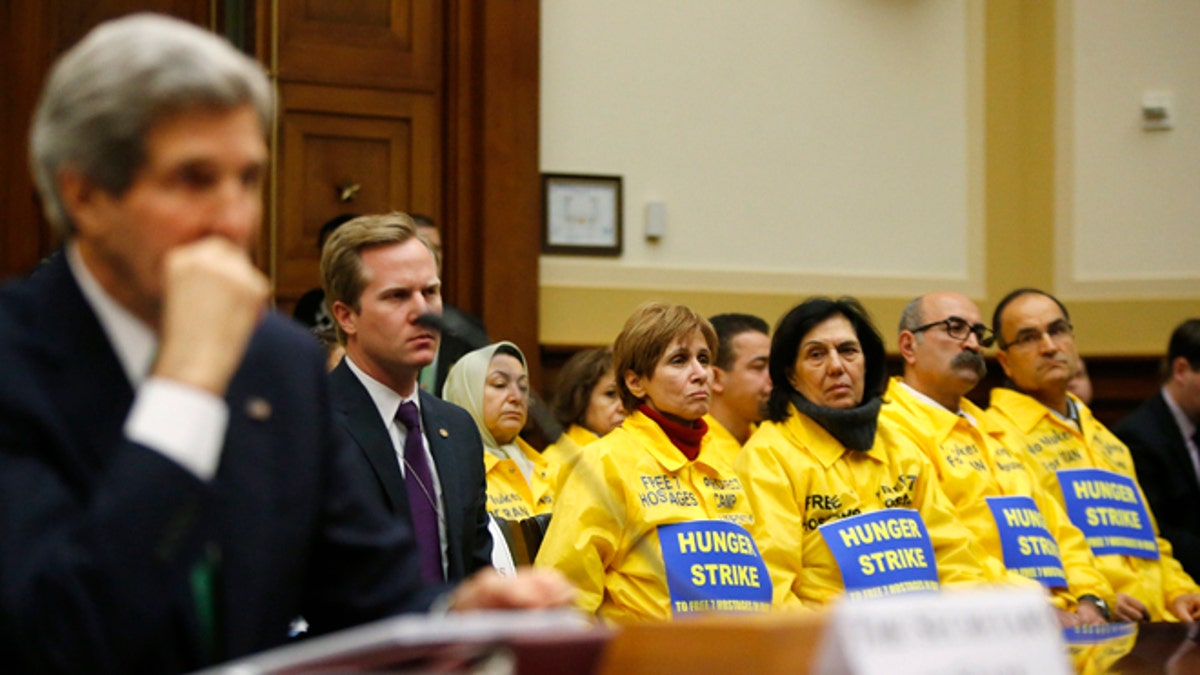
FILE: Dec. 10, 2013: Families of Iranian dissidents and Secretary of State John Kerry on Capitol Hill about Iran's nuclear programs, Washington, D.C. (REUTERS)
A team of international inspectors arrived Saturday in Iran, a key step toward fulfilling a deal the country has struck with the United States and other world powers to curtail its nuclear program.
The team of International Atomic Energy Agency inspectors arrived in Tehran and will visit Natanz and Fordo, Iran's uranium enrichment facilities, according to Iranian state television.
The deal takes effect Monday, amid continued concern on Capitol Hill and elsewhere about whether the Iranian government will fulfill its part of the deal, in exchange for an easing of international sanctions.
Under the international deal, Iran will limit its enrichment of uranium in return for some painful economic sanctions being lifted. The deal will last for six months as Iran and the world powers negotiate a final deal.
In return, some Western sanctions to be lifted against Iran. The deal will last for six months as Iran and the world powers negotiate a final deal.
Yet the deal has skeptics. Some U.S. lawmakers have pushed for more sanctions against Iran. Iranian hard-liners call the deal a "poisoned chalice" and lawmakers there have introduced a bill calling for even higher uranium enrichment.
As insurance, the Senate has drafted legislation to increase sanctions, as President Obama and his team urges members to wait before enacting a bill.
Iran's top nuclear negotiator, Abbas Araghchi, said earlier in the week that his country could resume enriching uranium to levels prohibited under the deal within about a day, if it chose to do so.
The administration's top Iran negotiator, Wendy Sherman, asked Senate leaders on Thursday to support the deal, saying passing such legislation could upset Iran and poison talks.
Her effort came one day after Obama, who has threatened to veto such legislation, met with Senate Democrats to urge them to give negotiators six months to complete the deal.
The five other world powers are Britain, China, France, Germany and Russia.
The West fears Iran's nuclear program could allow it to build an atomic weapon. However, the Iranian government says the program is for peaceful purposes.
The Associated Press contributed to this report.




